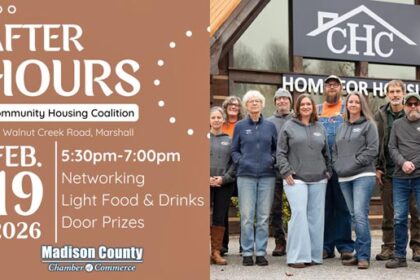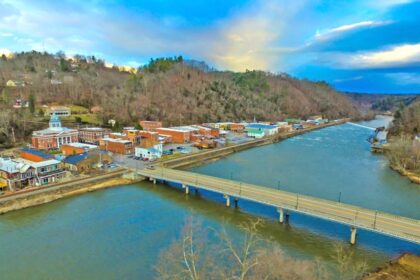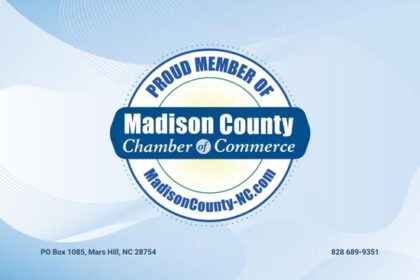 The U.S. Small Business Administration (SBA) is reminding businesses, private nonprofit organizations, homeowners, and renters in North Carolina affected by Tropical Storm Helene, that occurred Sept. 25-30, to apply for physical damage disaster loans by the Jan. 7, 2024 deadline.
The U.S. Small Business Administration (SBA) is reminding businesses, private nonprofit organizations, homeowners, and renters in North Carolina affected by Tropical Storm Helene, that occurred Sept. 25-30, to apply for physical damage disaster loans by the Jan. 7, 2024 deadline.
Eligible disaster survivors are encouraged to apply for a disaster loan prior to the resolution of their private insurance company claim. Even If a survivor has not received an estimate of damage determination, SBA can provide a low-interest disaster loan for the total loss, up to its loan limits. The survivor will simply need to agree to use the insurance settlement amount to reduce or repay the loan.
Businesses and private nonprofit organizations of any size may borrow up to $2 million to repair or replace disaster-damaged or destroyed real estate, machinery and equipment, inventory, and other business assets.
Disaster loans up to $500,000 are available to homeowners to repair or replace disaster-damaged or destroyed real estate. Homeowners and renters are eligible for up to $100,000 to repair or replace disaster-damaged or destroyed personal property.
“SBA’s disaster loan program offers an important advantage–the chance to incorporate measures that can reduce the risk of future damage,” said Francisco Sánchez, Jr., associate administrator for the Office of Disaster Recovery and Resilience at the SBA. “Work with contractors and mitigation professionals to strengthen your property, and take advantage of the opportunity to request additional SBA disaster loan funds for these proactive improvements.”
Applicants may be eligible for a loan amount increase of up to 20% of their physical damages, as verified by the SBA for mitigation purposes. Eligible mitigation improvements may include a safe room or storm shelter, sump pump, French drain or retaining wall to help protect property and occupants from future damage.
Interest rates are as low as 4% for businesses, 3.25% for nonprofit organizations, and 2.813% for homeowners and renters, with terms up to 30 years. Interest does not begin to accrue, and monthly payments are not due, until 12 months from the date of the initial disbursement. Loan amounts and terms are set by the SBA and are based on each applicant’s financial condition.
On Oct. 15, 2024, it was announced that funds for the Disaster Loan Program have been fully expended. While no new loans can be issued until Congress appropriates additional funding, we remain committed to supporting disaster survivors. Applications will continue to be accepted and processed to ensure individuals and businesses are prepared to receive assistance once funding becomes available.
Applicants are encouraged to submit their loan applications promptly for review in anticipation of future funding.
With the changes to FEMA’s Sequence of Delivery, survivors are now encouraged to simultaneously apply for FEMA grants and SBA low-interest disaster loan assistance to fully recover. FEMA grants are intended to cover necessary expenses and serious needs not paid by insurance or other sources. The SBA disaster loan program is designed for your long-term recovery, to make you whole and get you back to your pre-disaster condition. View the fact sheet.
Do not wait on the decision for a FEMA grant; apply online and receive additional disaster assistance information at sba.gov/disaster.
Applicants may also call SBA’s Customer Service Center at (800) 659-2955 or email disastercustomerservice@sba.gov for more information on SBA disaster assistance. For people who are deaf, hard of hearing, or have a speech disability, please dial 7-1-1 to access telecommunications relay services. The filing deadline to return applications for physical property damage is Jan. 7, 2025. The deadline to return economic injury applications is June 30, 2025.
The disaster declaration covers Alexander, Alleghany, Ashe, Avery, Buncombe, Burke, Caldwell, Cabarrus, Catawba, Cherokee, Clay, Cleveland, Forsyth, Gaston, Graham, Haywood, Henderson, Iredell, Jackson, Lee, Lincoln, Macon, Madison, McDowell, Mecklenburg, Mitchell, Nash, Polk, Rowan, Rutherford, Stanley, Surry, Swain, Transylvania, Union, Watauga, Wilkes, Yadkin, and Yancey counties and the Eastern Band of the Cherokee Indians in North Carolina which are eligible for both physical damage and Economic Injury Disaster Loans (EIDLs) loans from the SBA.
Small businesses and most private nonprofit organizations in the following adjacent counties are eligible to apply only for EIDLs: Anson, Chatham, Davidson, Davie, Edgecombe, Franklin, Guilford, Halifax, Harnett, Johnston, Montgomery, Moore, Richmond, Rockingham, Stokes, Wake, Warren and Wilson in North Carolina; Rabun, Towns and Union in Georgia; Cherokee, Chesterfield, Greenville, Lancaster, Oconee, Pickens, Spartanburg and York in South Carolina; Blount, Carter, Cocke, Greene, Johnson, Monroe, Polk, Sevier, and Unicoi in Tennessee; and Carroll, Grayson and Patrick in Virginia.
The U.S. Small Business Administration helps power the American dream of business ownership..As the only go-to resource and voice for small businesses backed by the strength of the federal government, the SBA empowers entrepreneurs and small business owners with the resources and support they need to start, grow or expand their businesses, or recover from a declared disaster..It delivers services through an extensive network of SBA field offices and partnerships with public and private organizations. To learn more, visit www.sba.gov.








